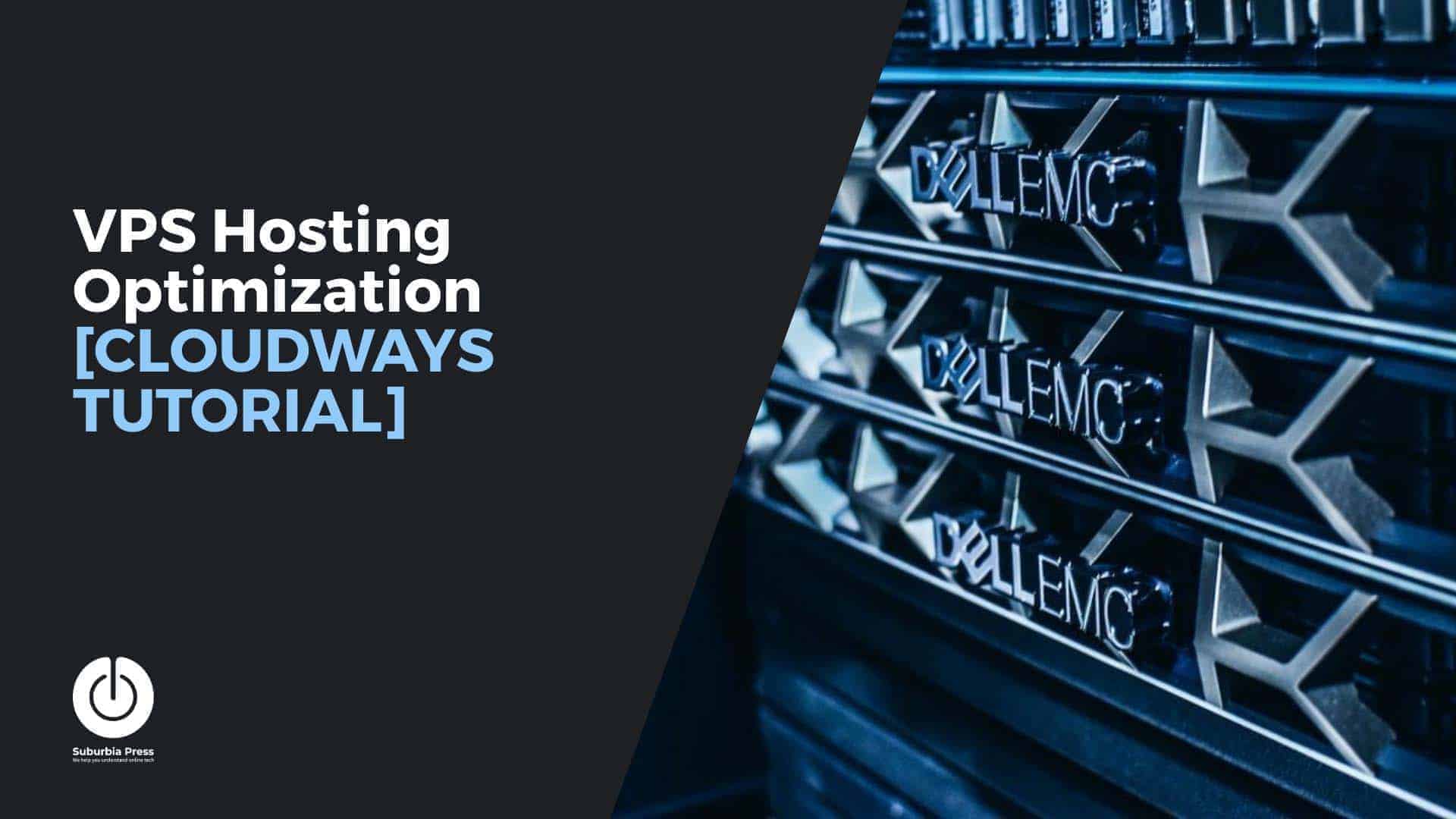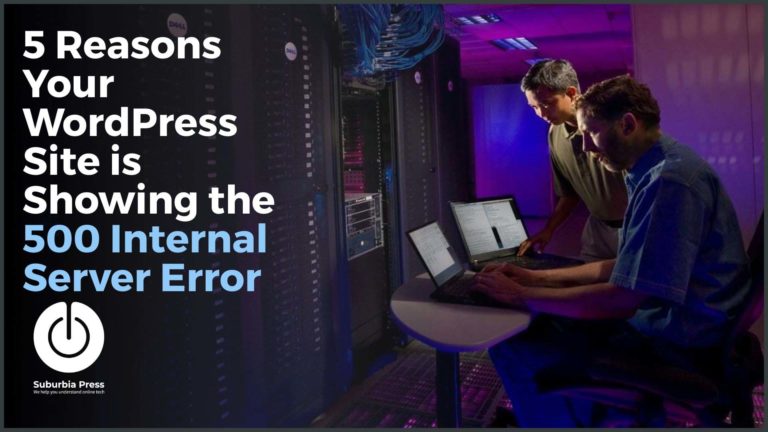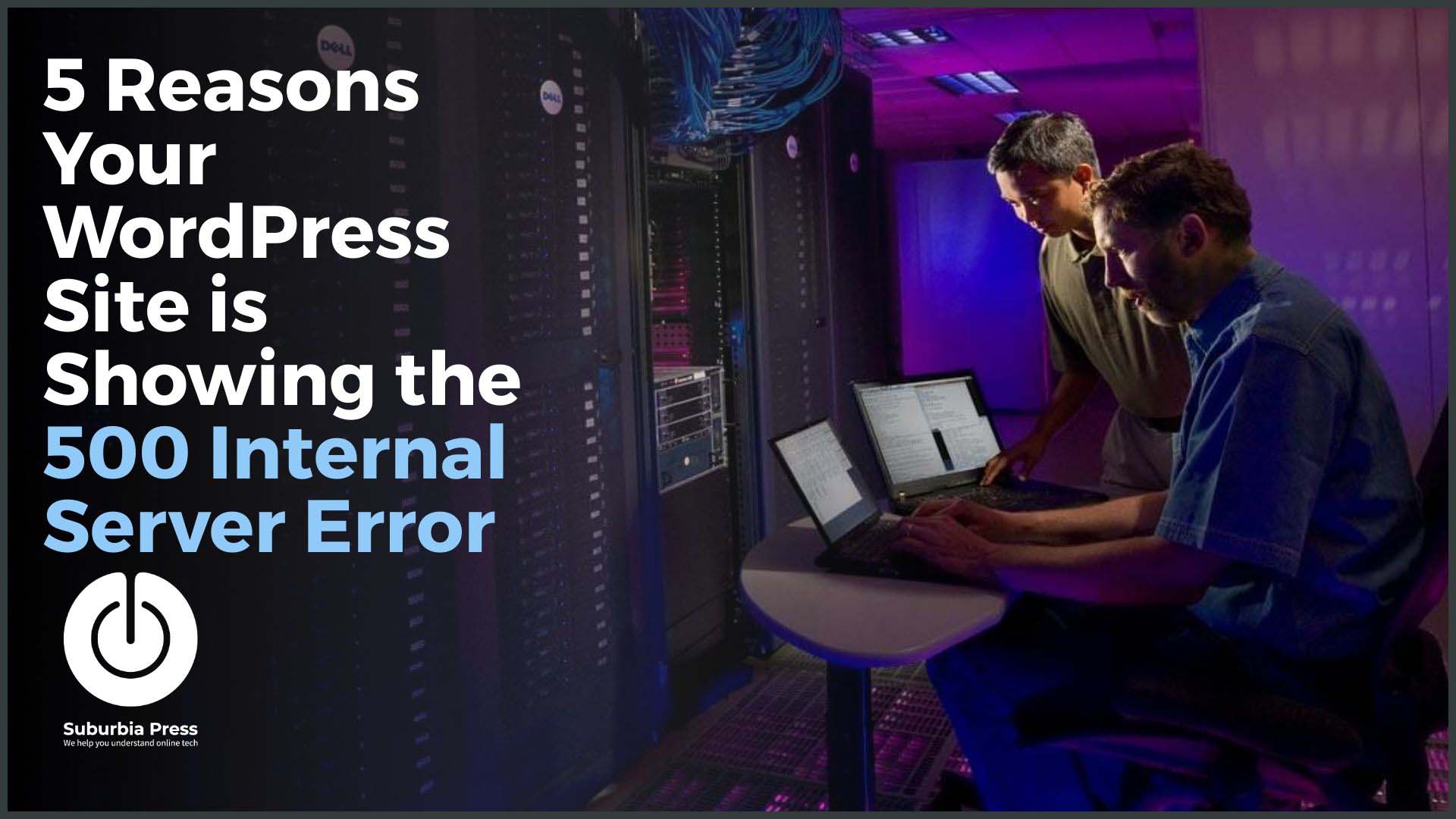Hosting Platforms
If you’re going to create an online business, you need a platform to host the information that you want to share and to process your sales.
There are several types of hosting platforms available for you to use, but we’re going to concentrate on three major purposes in this article.
These services are the foundation for your online business. There are different choices you can make, so we’ll take a look at the criteria to consider for each type.
What is a Web Host?

A web host is a business that provides the computer and networking environment to serve a website to visitors. They have plenty of servers, staff to maintain them, and a fast internet connection to serve your site pages to visitors.
The cost to build and maintain this environment for a small business would be astronomical, and it requires dedication to keep the web host service up to date and operational.
Most small businesses won’t find it economical to either build this type of environment or maintain it. However, a web host company has an economy of scale to deliver services to many who need it.
Since there are people and businesses with different needs, there are different types of web hosting options available to consider.
1: Use WordPress
Whether you are just starting your business or have been in operation for years, WordPress is the best content management system option for you. Here are a few reasons why:
The best WordPress hosting company offers some compelling reasons to get you registered. Here are some important factors to consider.
As you can see, consumer demand creates many benefits from a Managed WordPress hosting plan.
2: WordPress has Many Benefits
You don’t need to be a developer or computer programmer. All you need is WordPress installed on your website and a theme that matches the feel of your business. There are many free themes that provide design templates for all types of websites, from blogs to creative agencies.
You just need to pick the one that is best for you. There are many third party themes and plugins available for free or paid to provide almost any service you can imagine.
WordPress sites run faster than other platforms because they are lightweight and don’t need a lot of processing power compared to other site builders. This means that your website will load with ease for your customer on any device, whether it’s a phone, tablet, or desktop computer.
While some argue that WordPress sites are not ideal for mobile devices, they actually perform better. WordPress sites are responsive, meaning that they will adjust to the screen size of the device. This means that your customers can access your website quickly on any device.
Load a new WordPress site and then test it on a site like GTMetrix and you’ll get a practically perfect score. WordPress is fast by default.
Since WordPress is a content management system, it is SEO-friendly. The content on the site is organized well and displays correctly on all devices. This means that it’s easy for search engines to crawl through your website and find the content you are trying to get them to see.
You easily create content silos and topical authority using the structural tools inside of WordPress. Write your posts and pages with a plan to help people understand a topic, rather than a keyword, and it’s easier for Google and other search engines to crawl your WordPress site.
WordPress has a large community of users that are willing to assist each other and work together. Their collaboration improves the quality and content on the website- it’s easier for people to help each other out with small tasks instead of just waiting around for someone else to do all of the work.
Since WordPress has such a large following, you know it’s going to be around and supported by a variety of people for a long time.
WordPress is an open-source project, which means you can customize it as much as you want without worrying about compatibility issues.
Finally, WordPress has a huge variety of templates- so you can always find one that matches your unique needs!
Unlike SaaS blogging platforms, you have total control over your WordPress site. You can choose the theme, fonts, colors, and services without writing any code.
Blogging services like Wix or Squarespace aren’t expandable. WordPress supports plugins that provide additional services to your site. Using these plugins, you can create a membership or course site. It’s not just a blogging platform.
You can integrate with WooCommerce or a SaaS service like ThriveCart to provide e-commerce solutions. Develop your own landing pages, rather than use a 3rd party service. The potential is wide open for your imagination, but there are plenty of sources to help with guidance or ideas.
3: Choose WordPress Hosting
WordPress Hosting, sometimes called Managed WordPress hosting, is a hosting product that’s already configured to host a WordPress website for ease of use and optimum performance.
If you know that you’re going to use create a WordPress blog (and I recommend that you do), then you want to consider three criteria for a WordPress hosting plan to get your best value:
The idea of a WordPress hosting plan is to relieve the customer of the need to manage the infrastructure. That allows the customer to have a simple, easy-to-use interface to access a WordPress website.
You don’t have to worry about anything regarding the hosting of your site. The WordPress host takes care of optimizing performance, performing backups, keeping your site secure, and potentially even updating your WordPress installation and plugins.
That leaves you more time to work on your business instead of maintaining your WordPress hosting platform.
You can find several Managed WordPress Hosting providers on the market. Most of them provide a good service, so you’ll want to pay particular attention to the Support department response and how they treat you, not just your website.
Cost is obviously another factor to consider. Paying more doesn’t always mean you’re getting more.
I left a prominent WordPress hosting provider because they became lax about customer service and their price kept rising.
My new choice is Cloudways. Read my review of why Cloudways hosting is the best for online entrepreneurs.
4: Use a Shared Hosting Plan

Most managed WordPress hosting sites use a methodology called Shared Hosting. A single physical server may house hundreds of websites simultaneously. It keeps the cost low and makes WordPress hosting accessible to more users.
The problem is that Shared WordPress hosting plans like overbooking. If each website on the shared host used all of its allotted resources at the same time, it would exceed the resources of the host.
Fortunately, most sites don’t use all of their resources. In fact, there’s a lot of waiting and spikes in the website business. That allows the platform to serve the website in need when it gets traffic and then reallocates server resources to another site when it gets traffic or demand.
Another problem is that a poorly configured website on the host may consume ample resources on a continuing basis, which decreases availability for every other website on the host.
A site with a huge spike in traffic does the same thing. Your visitors may suffer slow performance because the low-cost platform can’t allocate enough resources to each website when one of those sites gets popular or hungry.
Depending upon the server platform used, some Shared WordPress hosting sites offer performance that rivals more expensive hosting platforms. However, you can still suffer performance issues if one of your neighbors hogs the server resources.
5: Use a Dedicated Server
On the other end of the hosting spectrum is a dedicated server. As the name implies, this is a server whose resources are completely at the disposal of your site or account.
It’s also one of the more expensive options. It may cost hundreds of dollars per month. The decision to use a dedicated server often occurs when your business is popular enough to offset the cost and drive more revenue with better performance.
So how do you decide if you need a dedicated server?
1: Your website grows
Traffic spikes on a Shared WordPress hosting platform cause problems in both directions. If you lose resources because of a neighbor, then your business suffers.
If your website is getting so much traffic that you’re denying resources to other websites on the server, then you become a problem for everyone else. That’s usually when your WordPress hosting provider has to move you to a better-performing platform. That move always costs you more money.
The time to move is before it’s too late. Your current web host should have the ability to handle occasional traffic spikes up to 30 times your normal traffic rate. If your traffic is on the rise on a regular basis, it’s time to plan a move to a better WordPress hosting provider.
If you don’t keep up with traffic, your site will start slowing down. That can cause visitors to leave due to poor response. In turn, that increases your Bounce Rate and may cause search engines to reduce your ranking in their results.
That means you lose business because of cheap hosting.
2: Improve your security
If you keep customer data, credit card information, or other sensitive data, you’re obligated to protect that information.
Hackers continually look for ways to get access to sites and the information they contain. When you’re on a shared plan, you don’t know if another site on the web host has malware that could infect the server, and therefore allow access to the data on your site.
Most good web hosts try to scan for malware and security breaches, but it’s not a perfect system. The gap between scans of your site and others may be enough to allow a hacker or malware to get a foot inside of the server.
When you have a dedicated server, you don’t have problems with your neighbor’s security. Instead, you have the responsibility to keep your own site secure.
You get to optimize security for the needs of your website. If that’s not your thing, some web hosts provide maintenance plans where you can specify your needs and the web host staff will take care of the details for an additional cost.
3: Page performance optimization
I’d like to tell you that performance is critical for your site and the pages in it. For most of you, that’s true.
Poor load times turn off customers and they go away. That increases your bounce rate and indicates to search engines that your WordPress site is not a good resource to refer to in their results.
The exception is if your website is so significant that people are willing to put up with your poor performance to get to the information on it.
CNN is critically abysmal site performance by many metrics, but it’s often ranking high in search results by Google and others.
Why?
Because their information is timely and relevant to those who want to read or watch the information there. Maybe they like the way CNN presents information compared to other news sites.
Is your site as relevant as CNN? If the answer is “no”, then you need to optimize performance as a critical ranking factor. Google’s Core Web Vitals show how much this means as a ranking factor and will disrupt who sits atop the results for many searches.
A dedicated server gives you a greater ability to optimize performance as much as possible. No other site can use your resources, and you can always add more resources (memory, CPU, disk capacity).
4: You want control
As one of my old bosses used to say, “It’s good to want.”
Having a dedicated server gives you options for more control. You can allocate the resources as you see fit. You can change the operating system or web host software.
Those decisions are advanced issues and may require someone on your staff to control or contract with someone else to implement and maintain. However, you can dictate what happens on a dedicated server.
6: Use a Virtual Private Server

Somewhere between Shared WordPress Hosting and a Dedicated Server is a Virtual Private Server (VPS). The best WordPress hosting service I’ve ever used is a VPS with Cloudways. Specifically, I use a VULTR HF VPS with Cloudways. It’s the best combination of price, performance, and service you can find.
Cloudways VPS offers a free SSL and a free site migration to help you get started.
Here’s how it breaks down, so you can choose the right option.
Shared WordPress hosting is a web host with a single operating system and web service software, like Apache, Lite Speed, or NGINX. There are several web servers consuming the same resources of memory, CPU, and disk capacity.
A Dedicated Server is a separate hardware device. As we mentioned, you have all the marbles. You decide what OS, web software and resources are on this dedicated piece of server hardware. If you can afford it and manage it, then it’s all for you.
A VPS is a combination of both platforms, but don’t dismiss its ability to be a good decision.
In many of the corporate environments where I’ve worked (Lockheed Martin, PwC, Lucent, AT&T, etc), a virtual server system was the ideal solution for price, flexibility, and maintenance.
Instead of running stand-alone servers, web hosts can operate server farms – collective arrays of servers and disk storage systems that operate as one grand resource.
Virtualization software, like VMware and others, divides up those resources into virtual servers. From a user’s perspective, it acts just like a dedicated server.
A VPS has its own dedicated amount of resources. The web server software inside belongs to that VPS and doesn’t have other sites using the resources.
It’s more cost-effective for the web host to operate with virtual servers, so they don’t have to charge you as much as if you had a physical server.
If you need additional resources, like adding more disk space or memory, then they can do that with a software configuration change rather than pulling your physical dedicated server offline, cracking it open, and installing a new drive or more RAM.
Keep in mind that your physical device upgrades take your site down during the upgrade time.
Another advantage of a VPS is that the web host can reallocate the environment to another hosting environment in case of a problem, which keeps your site running.
Most of the Shared plans are likely running on a VPS, too. With your own VPS, you get the lower cost of virtualization without the resource drain of sharing with other sites.
Many of the benefits of Dedicated Hosting also apply to a VPS, though the details depend upon what the host offers. Remember, the more control or resources you want will affect the price you pay.
Virtual servers are scalable, so you can add more resources as you grow your business and demand for your site.
You Need a Podcast Host

Not every business needs or wants a podcast, but it’s a good marketing tool that deserves consideration.
Having a podcast puts your voice in the ear of potential customers, or existing customers. It lets them get a better idea of who you are and how you run your business. It gives you an opportunity to show your knowledge and demonstrate how you can help customers.
For your audience, listening to a podcast is something they can do in the background. Articles on a website demand someone pay direct attention, but people listen to podcasts on commutes or while doing other tasks. They don’t have to stop everything to watch, so they’re more inclined to listen.
You get to decide what goes into your podcast and how long it takes. That allows you to be an authoritative figure in your field as you share your experience and knowledge.
The spoken voice also helps establish a connection with your audience, where text can sometimes be misinterpreted.
1: Choose a Podcast Host
There are plenty of podcast hosts on the market. Most people who have never hosted a podcast can give you a lot of opinions on which one is best. Then others who have hosted a podcast and only used one platform will tell you their favorite.
I’ve hosted two podcasts, both with the same hosting company, for about five years now. My first podcast still has shows going weekly. My second podcast lasted 68 episodes and I decided to end it.
While I have my opinion and recommendation for a podcast host (Libsyn), my goal here is to give you criteria as to what you need to consider when you choose your podcast host.
With that in mind, here’s what I think is most important as you make your choice.
1: How many episodes?
In many cases, one show per week is a recommended amount. I started with three short episodes a week on my first podcast. While that was good to establish a base of episodes for my new show, it wasn’t sustainable
There are some podcasts that produce daily episodes of their shows, particularly some news-related podcasts. The decision of how many episodes you produce and how frequently you produce them has a specific bearing on your podcast hosting plan.
In my case, my plan has limits on how much data I can upload per week. Others allocate how much you can upload per month.
If you want to have more episodes or longer episodes that take more space, you need to pay for a plan that works with your requirements for storage.
Should you decide to end your podcast, but still keep it hosted for people to discover, you can downgrade your plan because you don’t be adding new data to your account.
2: Monetize your podcast?
There are a lot of podcasters who believe their podcast is their business. I disagree.
In my view, a podcast is a marketing tool. Through that podcast, you can sell advertising and get paid per episode if you have sufficient downloads. You can also use your podcast to refer traffic, either to your own products or to affiliate sales products.
These are all potentially effective methods of marketing if you do a good job of attracting an audience tuned into your message.
Another earning potential is to get donations or offer a membership so listeners can directly contribute money to you. Patreon is one of the most popular methods, but they take a huge cut of donations.
If you go this route, it’s better to set up your own website and donation or membership system so you can keep more of the revenue that your grateful audience contributes.
After all, they want YOU to have the money, not a middle-man business.
3: Analytical information
As in most cases, it’s all about the numbers. You want to ensure that your podcast host can provide you with accurate and timely metrics for your podcast. In turn, those metrics will help you decide how to serve and grow your audience.
The same podcast host may have different plans with different levels of metrics. I mentioned earlier that you can downgrade your plan if you stop producing your podcast in order to save money. Doing so may also downgrade your available metrics.
When determining your podcast host, look for these metrics in their analytics package.
4: A good podcast player
You can actually get a lot of podcast listens and downloads on your website. That means you need to have a good player that makes it easy for visitors to listen and subscribe.
I use a 3rd party podcast player called Fusebox, but a good podcast host will also provide a player that you can embed on your WordPress or another site.
Some hosts offer a free podcast web page that they host, in case you don’t have or want your own web server.
It’s likely not a question of “if” your podcast host offers a player, but rather if the player is right for your needs.
5: Is your podcast host reliable?
If there’s one thing that you don’t want to do, it’s to self-host your podcast. Web hosts are good at web hosting, but they aren’t designed to be podcast hosts.
Also, it’s good to have a separation of services. If one has a problem, you can still use the other hosting service while you resolve the problem. If you put all of your eggs in one basket, you’re completely out of touch when something goes down.
Podcasts are funny things. They’ll consume bandwidth for every show. If you get a spike, then the podcast uses more bandwidth. With some hosting plans, they may just shut your whole site down due to excess usage – particularly on a Shared plan.
Where web hosts charge you for going in excess of the bandwidth, visits or downloads on your plan, podcast hosts typically operate differently. They don’t charge you for getting a spike in traffic.
That’s why a reliable podcast host with a proven track record of operational uptime is your best friend to keep your show running.
Some people like a polished user interface, and so do I. However, it’s the operational abilities and analytics that truly matter.
6: Good Support is Important
Much like your web host, your podcast host ought to be there for you when you need help. That may be to get you started, migrate your show from one host to another, or resolve technical problems that seem to occur when you get involved with technology.
2: Podcast Distribution
Once you have your podcast host in place and you’ve uploaded your shows, you need a way for people to find it.
One more benefit of a good podcast host platform is how easy they make it is to add a destination to share your podcast.
You need to get your podcast listed in resources where people are looking to find podcasts. It’s sort of like getting your website ranked on a search engine.
In my view, the two most important podcast directories are Apple Podcasts and Google Podcasts.
That doesn’t mean you should ignore other services, like Spotify or Overcast, but definitely, get listed with Apple Podcasts and Google Podcasts to drive downloads and attract listeners.
Apple Podcasts
Here’s the most important reason to get listed on Apple Podcasts. Every single iPhone, iPad, and iMac comes with this podcast app loaded to use.
It’s a built-in front door for potential podcast listeners of your show.
Google Podcasts
Google does something similar, where you can bet that every Android phone gets the Google Podcast app. Again, it’s an extremely popular app because it’s friction-free for the user.
Some users can and will get other apps. They can and will use different directory services to find podcasts, like Spotify, Stitcher Radio, or Overcast. Get your show listed in those directories, too.
How to Choose Video Hosting

Video, much like audio, is something you shouldn’t host on your website. Video hosting consumes a lot of space and bandwidth. Also, web hosts aren’t optimized to serve video.
Instead, you want to keep your videos on a separate host and then link to them as a resource to serve the video. That’s often referred to as embedding in your site.
Something to consider is if you want people to watch your videos on your website or on your video host. There are pros and cons to either method.
1: YouTube Hosting
Creating a YouTube Channel is a great marketing tool for your business. It’s much like a podcast, in that your audience can search to solve a problem and find one of your videos that provides the answer.
It’s a perfect example of video hosting where you want to publicly share your videos on the hosting service for people to discover. If you stick with it, you can eventually monetize your videos with the Youtube Partner Program.
At present, that requires 1,000 subscribers and 4,000 hours of watch time for your channel. When you meet those criteria, you can apply for monetization and serve ads on your videos.
Where YouTube isn’t quite as good of a video hosting platform is when you need privacy for your videos. After all, it’s a sharing platform and search engine.
If you need hosting for paid services, like a course or membership, YouTube’s options aren’t that great.
You can list your videos on YouTube in one of three ways:
The Public option is most common. When you publish, others can discover and watch your video on YouTube or embed it on your site.
Private videos on YouTube are only visible to you while you’re logged into the platform. That’s not suitable for sharing with a paid audience.
Unlisted videos require that you have the URL in order to watch the video. That can work in a private setting, but anyone who has the URL can share it with someone else who didn’t pay for access.
Another problem is the YouTube player itself. It’s very obvious to any viewer that they’re watching a YouTube video. Also, YouTube shows other recommendations for the viewer which may detract your audience from watching.
The goal of YouTube is to keep people watching YouTube. It’s a free service, which is why it doesn’t do much for you to keep things private.
Depending upon the type of business you’re in, YouTube may not like what you have to share. They’ve taken down videos that disagree with their terms and political views. They will demonetize a video or remove it if they don’t like what you have to say.
2: Private Video Hosting
A private video hosting platform is a better option for courses, memberships, or coaching. Of course, you’re going to pay for it as you do with other types of hosting platforms.
Do some research before choosing a private video hosting platform. Some of them also operate like YouTube by removing videos with topics they don’t like, even though you’ve paid for hosting.
Vimeo has certainly done this to its customers and that’s why I left them. Not that I ever had anything taken down, but I didn’t like the example they set for paying customers.
My preference for video hosting is Searchie.
Not only does Searchie provide great video hosting, but it also helps you repurpose the video you upload. Click here to discover the benefits of a Searchie hub.
Every video gets automatically transcribed. With that process, you can search inside your videos. When Searchie quickly finds the results, it will show you all of the places in the transcript where it found your search term. Click on a result and Searchie will take you to the moment in the video where it found the result.
With that transcription service, your audience can download the transcript, download the audio or download the video. Those options are something you can configure to allow or disallow.
More than that, Searchie allows you to create more options to serve your audience.
You can import from other services, like podcasts, live streams, or social media. Those imports also get transcribed.
That means I can automatically import my podcast and then download a transcription, which I can post on my Show Notes page for the podcast episode.
Those transcripts not only add more information to search engines to index, but they also serve to help hearing-impaired members of your audience. I know, because they told me!
Searchie allows me to create playlists for related videos, which I can then embed in my website, as in a LearnDash course.
Yet another option is a Searchie Hub. Basically, it’s like NetFlix for your videos and audience. Searchie hosts the site where you can create a landing page to host your playlists on a Hub.
You can determine who gets access to a Hub, Playlist, or Video based upon a tag assigned to subscribers. Then Searchie knows whether to show or hide the Hub, Playlist, or Video.
If someone shows an interest in a topic, you can add a tag to their account, which then reveals more video content related to their interest.
If you think about the value of having Searchie transcribe your video and audio uploads to enable search, transcripts, and more, it’s like having someone on your team do all of that processing for you.
If you’re interested in learning more about Searchie, click here. I’m a paying customer and also an affiliate. That means there’s no extra cost to you, but I’ll earn a small commission if you buy from my recommendation.
If you have more questions about Searchie, just visit my Contact page and let me know.
Summary
Small business users tend to make two mistakes when choosing their web hosting providers for WordPress hosting.
If you’re in business to earn revenue and profit, going the cheap route with your WordPress hosting may lead to failure because the web hosting plan you chose doesn’t have the resources you need to conduct business.
Surprisingly, some of the managed WordPress hosting plans are more expensive than a superior VPS WordPress site. I spend less on Cloudways than I did on WP Engine, and I get much better performance on my WordPress sites.
There are times when you need dedicated hosting services, such as for your video or podcast needs. These providers structure their servers to handle the unique traffic and data load that may cause problems for WordPress sites.
Make sure the customer support for your provider has a good reputation, as you’ll need them from time to time.
Once you select your hosting platforms, be sure to check out my recommended tools to help you grow your business.








![VPS Hosting Optimization [Cloudways Tutorial]](https://suburbiapress.com/wp-content/uploads/2021/09/VPS-Hosting-Optimization-768x432.jpg)




